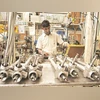Union Budget 2024: The final countdown for Union Budget 2024-25 has begun, with only seven days remaining. Various stakeholders have met with Finance Minister Nirmala Sitharaman during pre-budget talks, pitching recommendations and reforms for their sectors.
The automotive sector, like others, is hopeful that the Narendra Modi government will introduce schemes and policies to support its vision of ‘Viksit Bharat’ (Developed India) by 2047, marking 100 years of independence.
During the Interim Budget presentation on February 1, Sitharaman highlighted that the Centre is keen on expanding and strengthening the electronic-vehicle ecosystem, which is among the key expectations of the stakeholders as well.
Here’s what the auto sector wants in Budget 2024-25:
1) Experts are confident that the Centre would announce the Fame III scheme - aimed at supporting electronic vehicles. The Faster Adoption and Manufacturing of (Hybrid &) Electric Vehicles (Fame) is a policy in which the Centre offers financial incentives for the purchase of certain electric vehicles. Fame II expired on March 31.
More From This Section
2) Ahead of the interim budget presentation, Mercedes-Benz India MD and CEO Santosh Iyer had emphasised on continuation of capex on infrastructural projects, aiding the sector.
“The policy push for green mobility should remain a key focus for the government, encouraging faster adoption of electric vehicles,” he noted.
3) Auto industry body SIAM has sought additional incentives for vehicle scrapping. In a bid to drive a green economy, Sitharaman had said in the previous budget that there were enough funds to support scrapping of vehicles older than 15 years.
4) Stakeholders will also watch out if the Centre addresses the issue of petrol and diesel being exempted from the Goods and Services taxes. The auto industry is eyeing the reform, hoping it would boost consumption. The oil and gas sector has also been pushing to include petroleum products under the GST, an issue mainly opposed by the state governments. Though GST-related decisions are entrusted to the GST Council, any indication on this issue from the ministry in the budget could be a positive signal.
5) Industry leaders are also pitching for greater incentives for hybrid vehicle models. Additionally, a uniform GST of 18 per cent on all automotive components is among the longstanding demands of the sector.

)